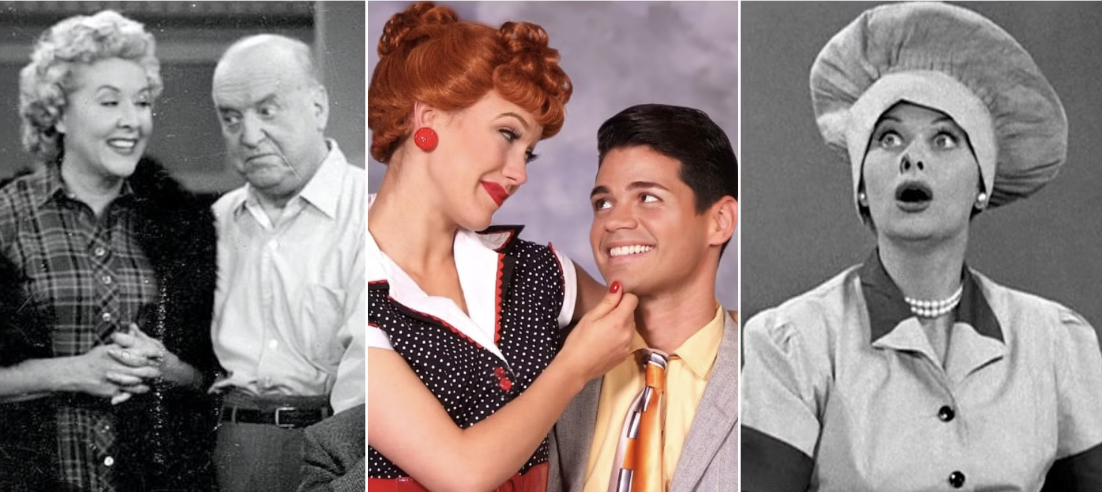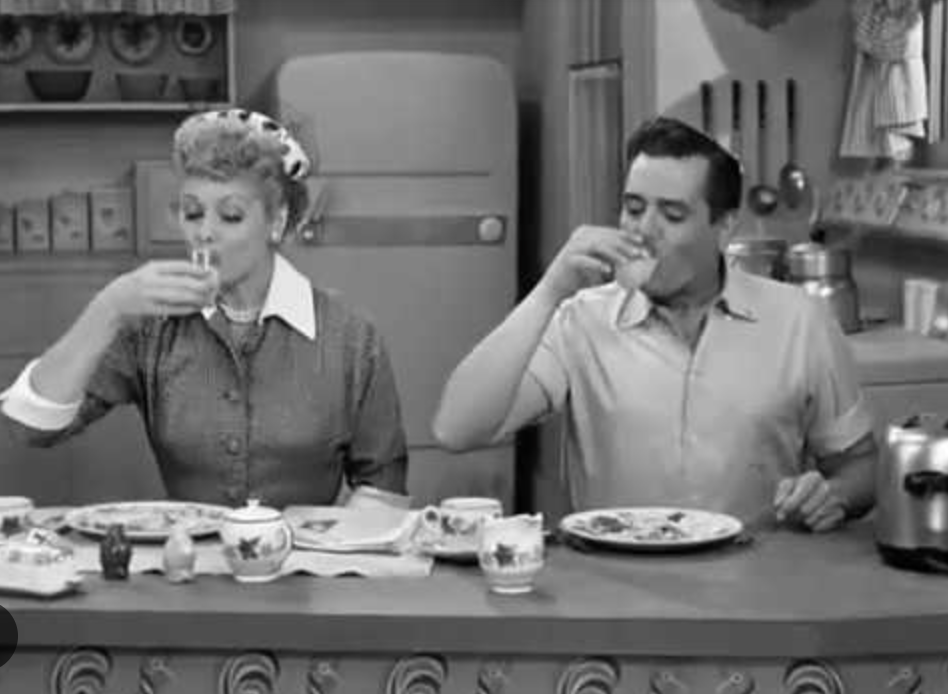
We all know Lucy Ricardo for her hilarious antics and iconic catchphrases. But beneath the slapstick and the schemes, Lucy was a trailblazer. Decades before many of today’s trends and discussions in Hollywood, Lucille Ball’s iconic character was subtly (and sometimes not so subtly) breaking ground. Here are 10 moments that prove Lucy was not just funny – she was revolutionary, and Hollywood could still take notes:

1. Subverting 1950s Gender Roles (With a Twist): While seemingly fitting into the domestic sphere of the ’50s, Lucy constantly challenged those boundaries. Her ambition to be part of Ricky’s world, even through outlandish means, defied the expectation that women should be solely confined to the home. She wasn’t just a housewife; she was a force of nature trying to carve her own path.
2. Mastering Physical Comedy Without Dialogue: Long before the rise of visual storytelling on platforms like TikTok, Lucille Ball was a queen of physical comedy. Her expressive face, impeccable timing, and willingness to throw herself (literally) into a scene often conveyed more humor than any line of dialogue could.
3. The Unsung Production Powerhouse: Lucille Ball wasn’t just the star; she was instrumental in the success of I Love Lucy through her production company, Desilu Productions. She fought for innovative filming techniques (like using multiple cameras) that revolutionized the sitcom format. This behind-the-scenes savvy is a lesson in creative control that resonates even today.
4. Embracing “Failure” for Comic Gold: Lucy’s schemes rarely went according to plan, and that was the brilliance of the show. She normalized the idea that it’s okay to fail spectacularly, as long as you learn (and provide ample entertainment) along the way. This resonates with today’s culture of embracing imperfections and learning from mistakes.
5. The Power of Female Friendship: The dynamic between Lucy and Ethel was a cornerstone of the show. Their unwavering support (and occasional hilarious betrayals) showcased a complex and enduring female friendship that went beyond simple stereotypes. This kind of nuanced portrayal is still something Hollywood strives for.
6. Blurring the Lines Between Reality and Performance: Lucille Ball and Desi Arnaz’s real-life marriage was woven into the fabric of the show, adding a layer of authenticity and relatability that was groundbreaking for its time. This blurring of personal and professional lives, though common today, was a novel approach then.
7. Tackling Social Issues (Lightly, But Effectively): While primarily a comedy, I Love Lucy subtly touched upon issues like cultural differences (Ricky’s Cuban heritage), class dynamics, and the challenges of pursuing artistic dreams. These undertones, though handled with humor, provided a glimpse into real-world complexities.
8. Creating Iconic, Timeless Characters: Decades later, Lucy, Ricky, Ethel, and Fred remain instantly recognizable and beloved. Their distinct personalities and relatable struggles are a masterclass in character development that continues to inspire writers today.
9. The Art of the Cliffhanger: I Love Lucy was a master of the weekly cliffhanger, keeping audiences eagerly anticipating the next episode. This episodic storytelling, perfected by the show, is a fundamental technique still used in television today.
10. Making Audiences Laugh, Regardless of Background: The humor in I Love Lucy transcended cultural and generational barriers. Its universal themes of ambition, friendship, and the absurdity of everyday life continue to resonate, proving the enduring power of well-crafted comedy.
Lucy Ricardo wasn’t just a funny lady on TV; she was a cultural force who unknowingly laid the groundwork for many trends and discussions we see in Hollywood today. It’s time we recognize her not just for the laughs, but for the quiet revolution she sparked on our screens.
